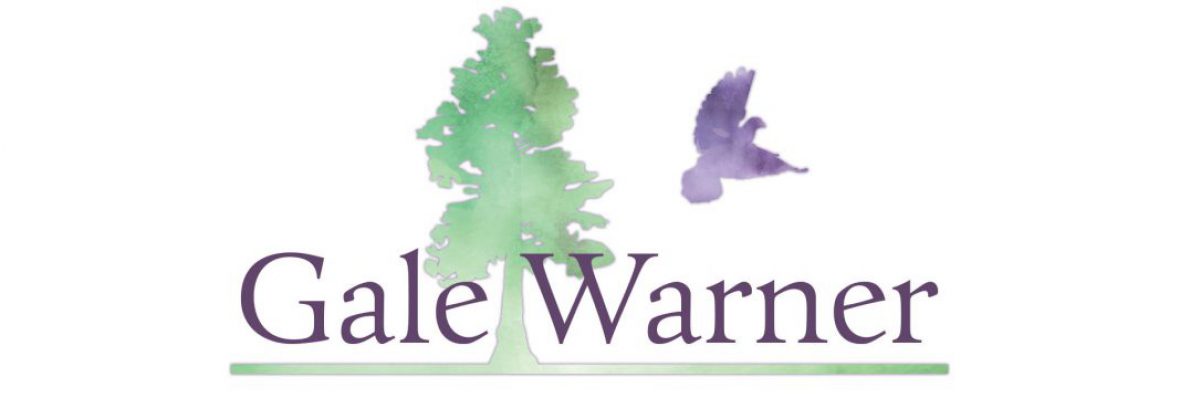Warner left behind writings on struggle for a better world and for her own life
Transcribed with permission from the Gloucester Daily Times, Jan. 18, 1992, Gloucester, Mass.
By David Lecco
Gale Lynne Warner spent nearly 10 years helping and chronicling the struggle of average Soviet citizens to bring freedom to their country.
But the last writings told of a different kind of struggle. When she died last month at age 31, Warner left behind 1000 pages of journal entries on her 14-month battle with lymphoma.
“She wrote a phenomenal amount about going through the process of the illness,” said Warner’s husband, David Kreger, who is editing the journals for publication,
“Every day she could she would sit at Wingaersheek Beach, writing dozens of pages on what she was experiencing, how she was going to make the best of the rest of her life, what she was learning about life.”
Warner and Kreger moved to a cottage near Wingaersheek Beach in 1986. She was a free-lance journalist who wrote articles on environmental issues and international relations. He was a Harvard medical student.
A few years earlier, they had become fascinated by the events taking place in the Soviet Union and other Eastern Bloc countries.
They had traveled to Hungary in 1983—at a time of great concern over nuclear war,” said Kreger—and the Soviet Union in 1985. Warner would make almost a dozen further trips.
It was her first trip, however, that led to an offer to co-write a book on Americans working for world peace and better relations with the Soviets—such people as industrialist Armand Hammer, Maine schoolgirl Samantha Smith, activist Norman Cousins and Dr. Bernard Lown, co-founder of International Physicians for the Prevention of Nuclear War.
The book, Citizen Diplomats: Pathfinders in Soviet-American Relations, was published in 1987.
As she was writing the book and traveling to the Soviet Union, Warner made closer and closer contacts with Soviet citizens working at the grass-roots level to change their country.
“The thought that even a few such people had survived the harsh political conditions of the Soviet Union intrigued me greatly,” Warner would write in her next book. “Somehow, living in a culture of pervasive personal disempowerment, they had found the power to act.”
Warmer too began to act, helping get information on democracy, group process, non-violent action and environmental ethics to Soviet activists.
“We really were helping to melt the cold war,” said Kreger.
Warner would write about the activists in her second non-fiction book, The Invisible Threads: Independent Soviets Working for Global Awareness and Social Transformation, published in 1991.
In the mid-1980s, Warner and Kreger pioneered a series of Soviet-American medical student and wilderness exchanges. In 1987, they brought a group of Soviet doctors to Gloucester on their way to a kayaking expedition in Maine.
In 1989, Warner co-founded Golubka, a Soviet-American network that publishes books and conducts workshops in the former Soviet Union on ecology, empowerment, and non-violence. She relied on computerized electronic mail to link the Wingaersheek cottage to a global network of activists.
In November of 1990, Warner was diagnosed with lymphoma. Although she immediately responded to chemotherapy and went into remission, the disease returned.
Warner spent the last months rafting in Maine, hiking in the mountains, and writing.
“I must say, even as the tears are running from my eyes, even as I feel the great sadness and grief at the thought of my dying so soon, I must say that I do not feel any large sense of unfinished business in my life,” she wrote in her journal “I have been to so many magical places, experienced so many magical things.”
She died Dec. 28 at Dana Farber Cancer Institute, after spending Christmas at home. Last Saturday, nearly a hundred friends gathered at the Ipswich Moving Company dance studio to hear her recent writings, sing some of her favorite songs, share stories and dance.
Born and raised in Ohio, Warner received the Presidential Scholar Medal from President Carter in 1978, as one of two winners from Ohio.
She attended Stanford University, where she graduated with honors with a degree in biology, and she acquired a master’s degree in English from the University of Massachusetts.
She taught environmental education in California and at Drumlin Farm and Plum Island in Massachusetts. She also wrote a book of poems called Breathing the Light.
Besides her husband, she is survived by her parents, Drs. Jack and Louise Warner of Ashville, Ohio, and her brother, Dr. David Warner, and his family of Rochester, Minn.


